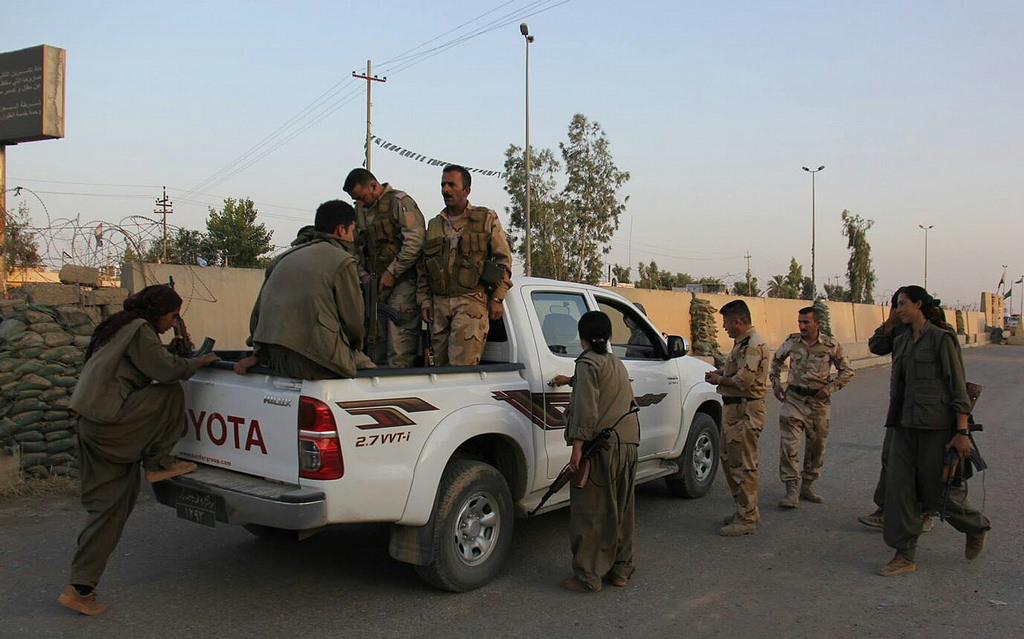Last week we asked why the US suddenly seems to have litte interest in capturing its enemies alive. We got lots of good answers. Reader Mark suggested that the messy nature of the war on terror has made trying suspected terrorists too difficult — unlike the post-WWII Nurenburg trials, there is no clear framework about how to try detainees like Khalid Sheikh Mohammed. This point is echoed by Matt, who points out that trying terror suspects captured abroad would reveal the government’s processes of identifying and targeting individuals for public review. Similarly, Greg Sanders doubted if the US even has a workable method of trying terror suspects during an ongoing war, and Anothny suggests the US is unlikely to go the the trouble of capturing and publicly trying terror suspects unless it has good reason to: during the ideological contest of the early Cold War the US had a clear political incentive to make itself look just. Pauline looked at the question through the lens of US capabilities, asking “if the individual in question truly does pose an immediate threat to national security what options does the US really have, save relying on the tenuous (or nonexistent) capacities of local law enforcement in places such as Somalia or Yemen?”
None of these responses, however, explains why the U.S. might have wanted Saddam Hussein or Qaddafi dead, neither of whom were terrorists. And why wouldn’t the US want to appear equally just now that the Cold War is over?
Others challenged the premise of the question. Dan Trombly went into detail at his blog, arguing that current US policy isn’t that different from previous decades:
“In other words, killing enemy leaders or accepting that outcome has been a bipartisan U.S. foreign policy component for a long time, varying primarily on pragmatic circumstance. Differentiating the assumed lethality of the hypothetical trial of Hitler from the trial against Saddam relies on what I think is a questionable counterfactual case. The U.S. interest in killing its enemies does not seem particularly sudden. Killing enemy leaders through legal means has been chosen where it has been pragmatic (as in the case of Saddam or Tojo), and ignored where it has not been (as in the case of the various attempts or successful assassinations of the Cold War).”
This could very well be true, but it still begs the following question: under what conditions does it make sense to kill via legal means versus just on sight? For those wanting to read more on this subject see Fabius Maximus.






0 comments
As a slight clarification, I think there;s a variety of workable methods depending on the situation, from P.O.W. status to civilian courts. However, at the moment, they don’t seem to be politically viable and Congress has actively restricted such approaches in the instance of transfering detainees to the U.S. for trial. That said civilian trials for terrorists and wider use of P.O.W. camps for admittedly more conventional foes were politically viable not so long ago and I rather hope they will be again.
Taylor says that none of these responses explains why the US might have wanted Hussein or Qaddafi dead. I guess I sort of question the premise there. I actually don’t believe the US “wants” its enemies dead, I just think the US doesn’t feel the necessity of trying to capture and try them…and then they end up dead. Yes the US let the Iraqis deal with Hussein, and yes it was clear he was going to die at their hands. But it’s fallacious to assume that this is therefore why the US handed him over. The counterfactual is that if the US knew that Hussain would NOT have been sentenced to death by the Iraqis, that the US would have taken him someplace that would guarantee his death. I disagree, and I don’t see evidence to support this. And regarding Qaddafi, there was a great quote by one of the Libyan soldiers. To paraphrase him: “we sincerely wished to bring Qaddafi to trial for his actions, but it seems God had other plans for him.” What it makes it difficult to isolate the US as the cause of the death of these guys is that they are ALREADY surrounded by enemies at home. All it takes is for someone to “not” step in for them to end up dead. That’s what happened. So: nefarious plot by Americans to ensure its enemies die, or american policy of taking the path of least resistance? I say the latter. occam’s razor anyone?
I don’t see how there was a clear framework at Nuremberg either. The people involved discussed, argued about, and formulated a novel framework just for the occasion.
I came into this late, but there is another possibility. in some recent research Courtney Conrad and Jackie DeMerritt have found that when governments are denounced for torture, they often turn to other human rights violations that are easier to conceal to control their opponents.
It’s early days to see if that’s what’s going on here, but it fits: the US has enemies, we captured them, we tortured them, we tried to try them, and we got a massive amount of bad press and domestic uproar as a consequence. Perhaps the alternative of death from above suddenly looked more attractive. It’s a cinch that not too many people are going to be disturbed by strikes at the terrorists. We’ll probably learn more about this as the memoires come out.